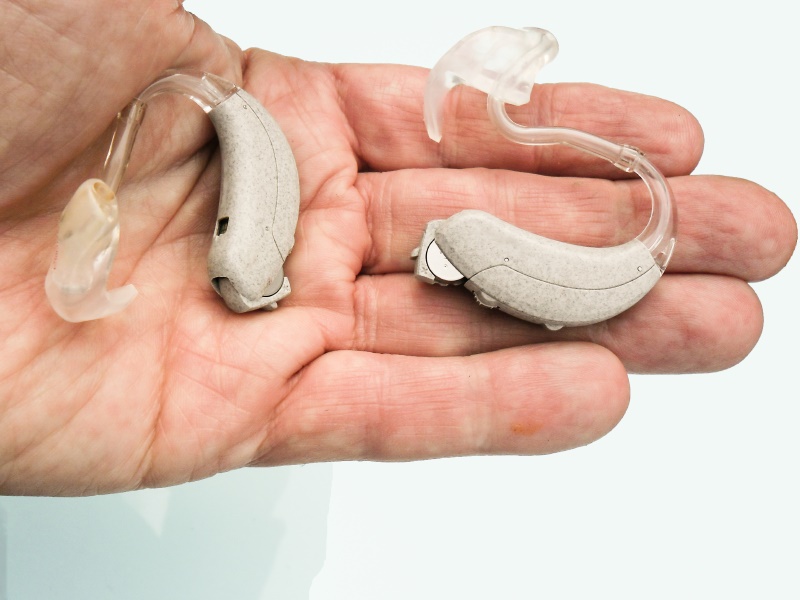
To help keep your hearing aids functioning correctly for years to come, you’ll want to learn about proper care and maintenance. And although it may seem like an extra burden, with the right process your hearing aid care will become effortless and automatic.
The trick is building effective habits.
If you incorporate your hearing aid care into your everyday and nightly routines, before long it won’t feel like any extra work at all.
The following are a few tips for the day-to-day care of your hearing aids (which your hearing specialist will also review with you):
Clean your hearing aids daily – Attempt to integrate your hearing aid cleansing into your nightly routine, so it will become as automatic as brushing your teeth. This is imperative because daily hearing aid cleansing can minimize the accumulation of earwax, dirt, and dust into the various components of the hearing aid, which can lead to distorted sound with time.
You’ll want to clean your hearing aid with a soft, dry cloth, while averting any kind of fluids that could destroy the hearing aid electronics. Consult your hearing professional for special guidance on cleaning each model of hearing aid.
You may also consider purchasing a hearing aid sanitizer, which utilizes ultraviolet light to safely and completely kill hazardous pathogens. Hearing aid cleaning kits are also obtainable with all of the instruments you’ll need to safely clean the device without harming the electronics.
Check the batteries – Hearing aid batteries should always be checked and replaced regularly to assure peak hearing aid operation. Consider using a battery tester each morning to assure you have sufficient power for the rest of the day, and carry an extra set of batteries on hand.
Before bedtime, when your hearing aids are not in use, turn them off and store them in a cool, dry spot with the battery door open.
Store your hearing aids in a safe and secure place – In regard to storage, you’ll want to try to remember three things:
- Keep the hearing aids away from moisture. This means that storing your hearing aids in the bathroom is probably a bad idea.
- Avoid exposing the hearing aids—and hearing aid batteries—to extremes in temperature. You’ll want to store your hearing aids in a cool, dry place.
- Avoid storing your hearing aids out in the open, where they can become damaged.
We highly recommend storing your hearing aids in a case or drying kit inside the drawer of a bedroom side-table. This will protect the hearing aids from dampness, temperature extremes, and damage from being pushed off the table.
In addition, remember to remove your hearing aids prior to showering, swimming, or using a hair dryer or hair spray.
Maintain ear hygiene – Even though earwax has several helpful qualities, including protection and lubrication of the ear canal, it can cause severe damage to your hearing aids. As it becomes lodged within the hearing aid components, sound can become distorted.
Make sure you’re maintaining proper ear hygiene, and if you experience increased earwax, consider booking a visit with a professional.
Carefully insert your hearing aids – While putting in your hearing aids, lean over a table or soft surface in case the hearing aids fall. Hearing aids include fragile electronics, so a fall on a hard surface can produce severe damage.
Even with diligent cleaning and maintenance, over time the hearing aid will call for more comprehensive cleaning or repair.
To assure that you continue to enjoy the best sound possible, we advise getting your hearing aids professionally cleaned by a hearing professional a minimum of twice per year.
Hearing care professionals will provide a deep cleaning, a tune-up, and will sometimes replace parts. Staying on top of this periodic maintenance will prolong the life of your hearing aids and will ensure that you achieve the best sound.